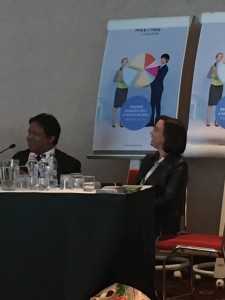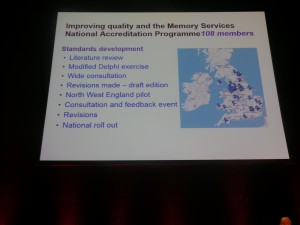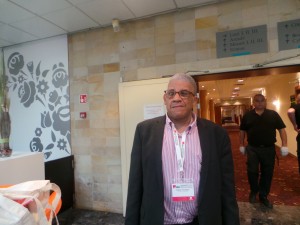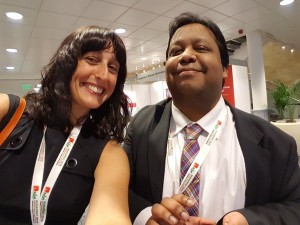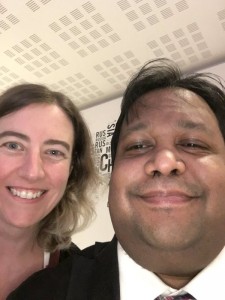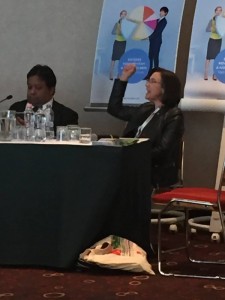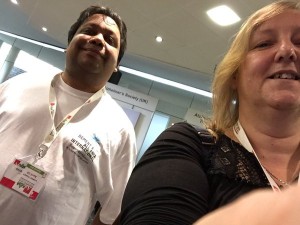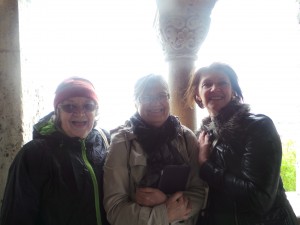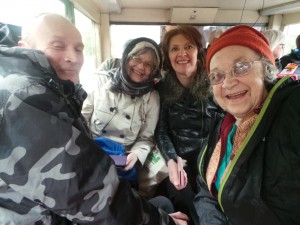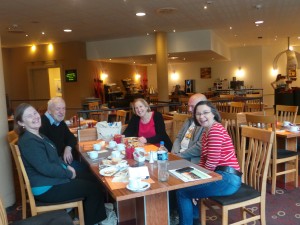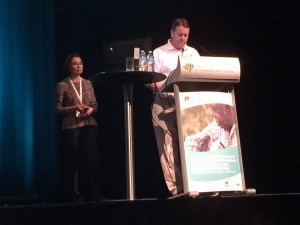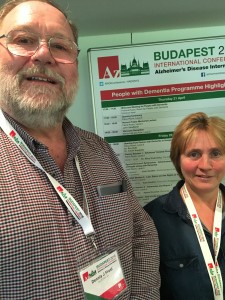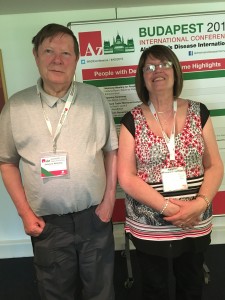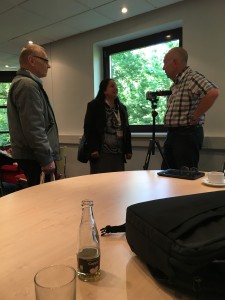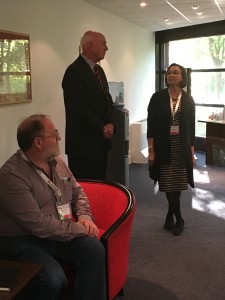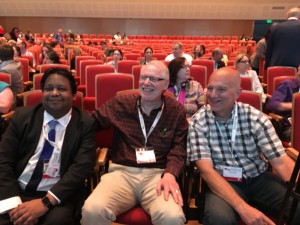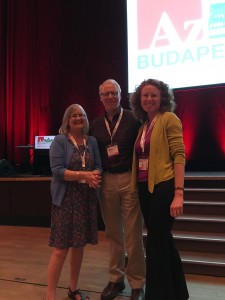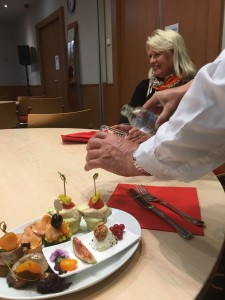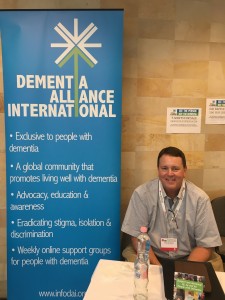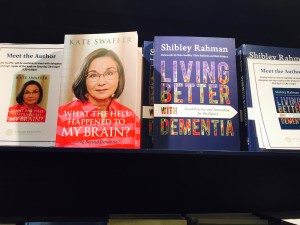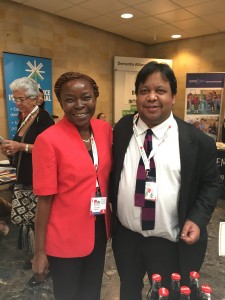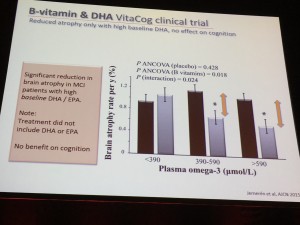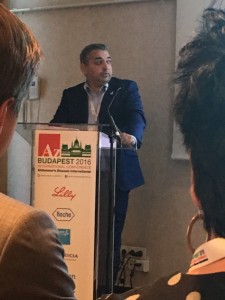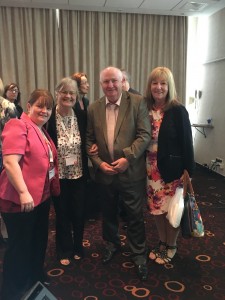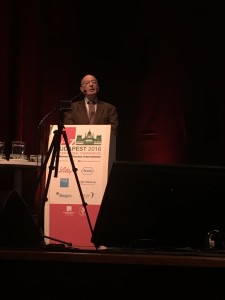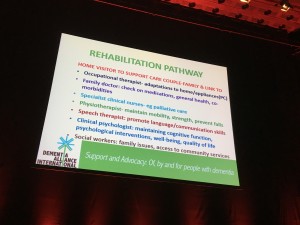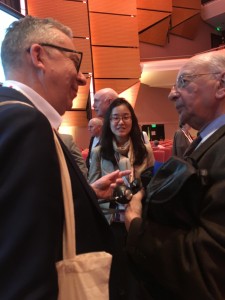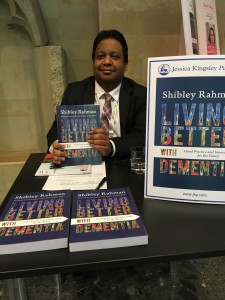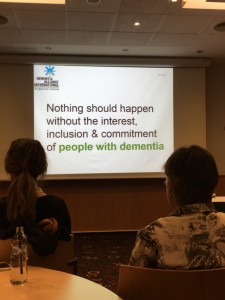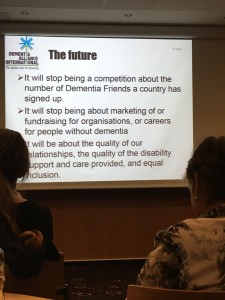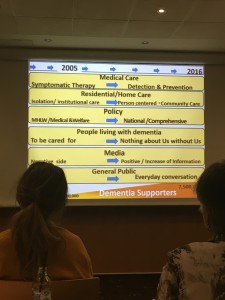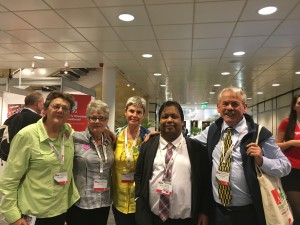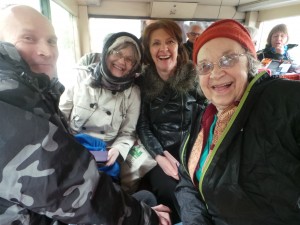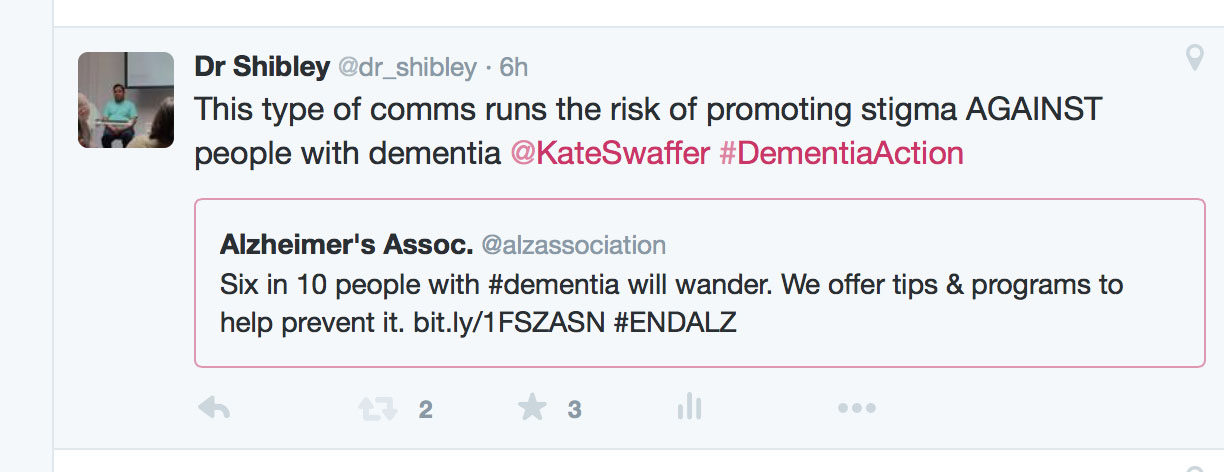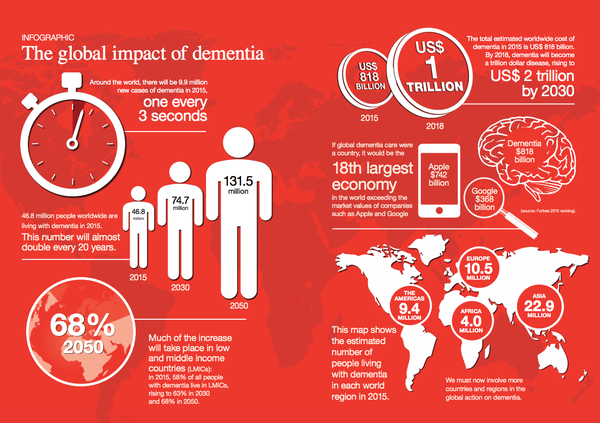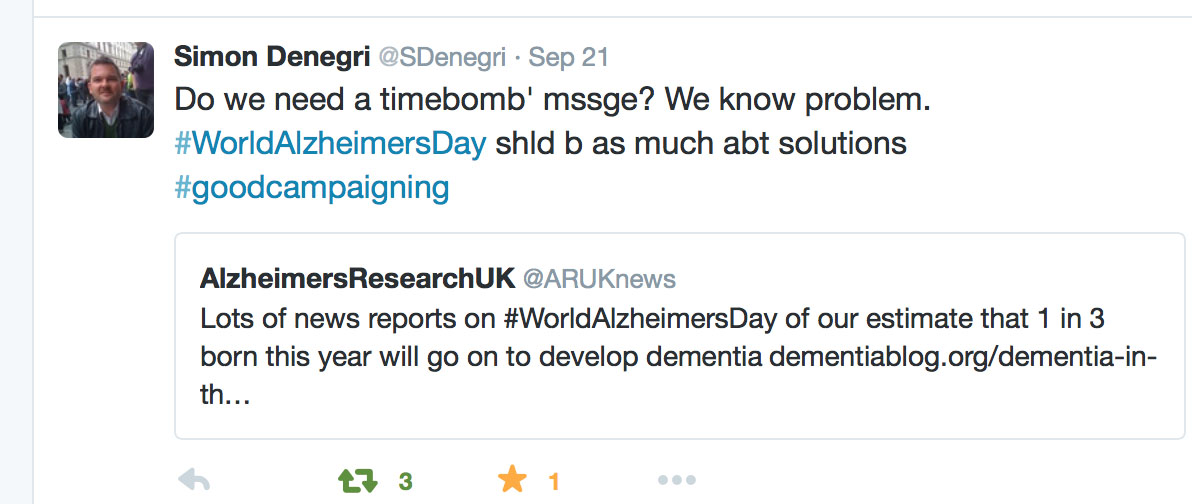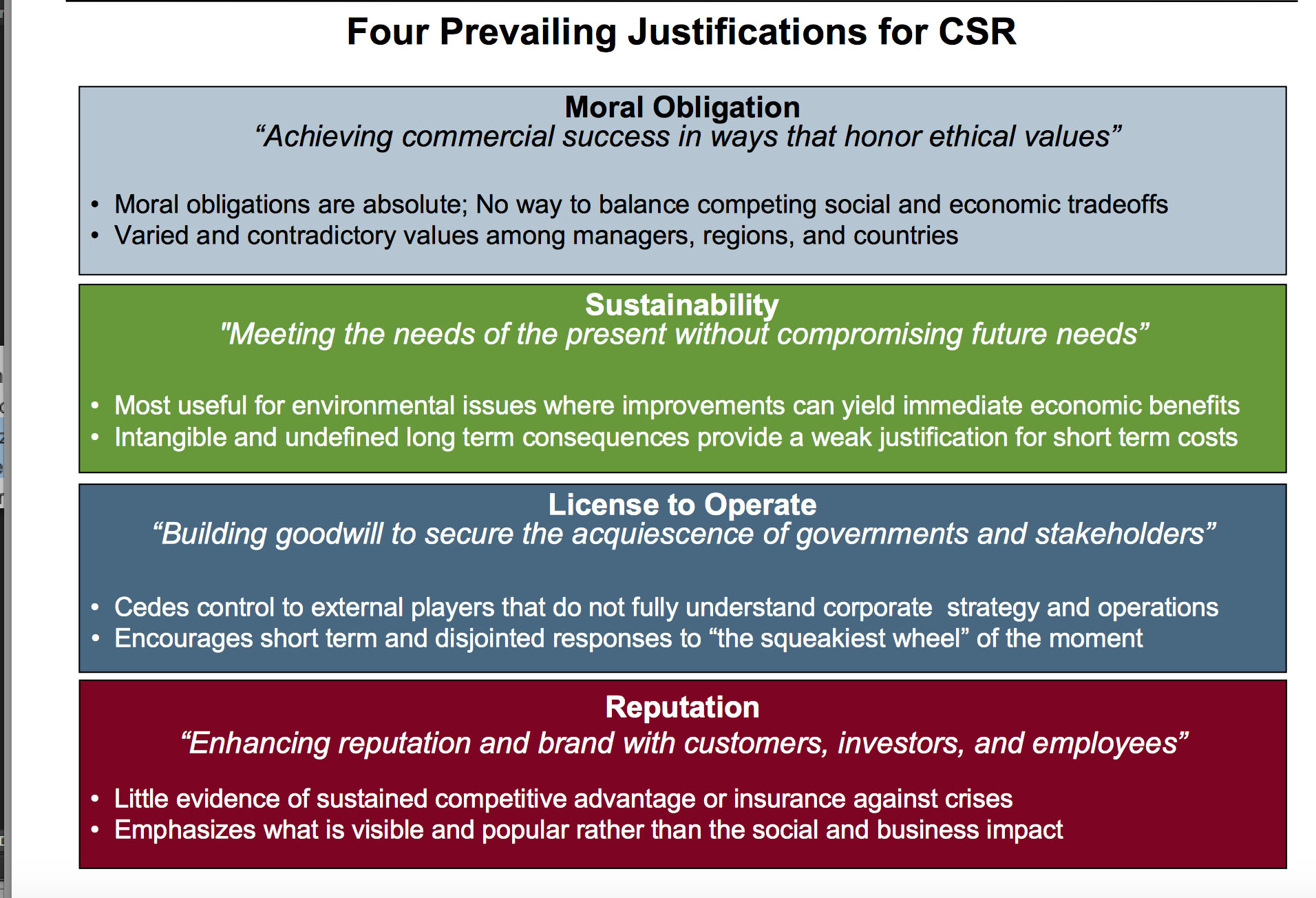I enjoyed the opening ceremony – though some delegates remarked to me how ‘fit’ the dancers were, maybe indicative of long plane flights to get to the conference venue.
Yesterday, I remarked to the CEO of Alzheimer’s Disease International (ADI), Marc Wortman, as Marc was leaving the hotel, that the Alzheimer’s Disease International conference had ‘interesting dynamics’.
What I actually mean is this.
Speakers from Dementia Alliance International were outstanding. I think Prof Peter Mittler’s talk on how people with dementia must demand access to their rights under the UN Convention for People with Disabilities was a game changer for many. For me, it was the best lecture I’ve ever attended in my lifetime.
I mentioned to some separately that for me Prof Peter Mittler was the equivalent of a premiership footballer, in terms of lecturing ability, when many lesser mortals in comparison look in lower divisions.
I reckon I would’ve actually made it to Dennis Frost’s talk on time especially, not wandered through accidentally half-way through by accident, had Dennis not been advertised as ‘A person with dementia’. This billing on the programme was complete nonsense – as ridiculous as having ‘A person without dementia’ to describe the billing of someone like a policy wonk from WHO.
This was a worthy project which caught my eye.
It was lovely to be recognised by so many at the conference – people whom I had never met before, as well as longstanding close friends of mine. The conference expectedly did have the atmosphere of a family wedding – with people I like and respect there.
I think Jeremy Hughes and George McNamara, senior people at the Alzheimer’s Society, gave excellent presentations. George’s one is particularly relevant to my next book, and contained many many useful avenues for future directions. I think Dementia Friends on principle has good aims, but a real concerted effort must be put now into making meaningful sense of this high cost campaign.
Dementia Alliance International (DAI) is a group essentially run by people with dementia to advocate for people with dementia. But the sheer individual brilliance of the presenters shone through – including Prof Peter Mittler and Prof Mary Radofsky whose contributions were incredibly interesting. There’s no doubt ADI hugely benefited from their presence in the conference, including in the programme list. But I do also feel this is a beginning.
The mood music has changed. DAI has a scarce resource other people want – individual expertise by people with dementia – which many people do not have. It’s clear that the future direction of dementia policy now can be ‘no decision about us without all of us’, and can move from dinosaur lobbying techniques and hospital-dominance to representing the sincere views of people living with dementia.
A day before the first full day, Glenn Rees AM, Chair of ADI, let us know that his Board had approved DAI’s proposal to promote Convention rights, and this would now become their official policy, such that it would be left up to individual national organisations as to how best implement rights-based advocacy. Rights-based approaches, including rights to independent living and right to health, have huge implications for dementia care and support worldwide.
Helga bust a gut to help me with my book signing session.
Thanks very much to Peter Macfarlane from Wisepress for his help for this. Dale Goldhawk, Vice Chair of ADI, even bought a copy!
I had great feedback from my presentation on the awareness of international human rights. Thanks very much to John O’Keefe for chairing this.
Some photos I took are here.
I suppose my favourite ‘times’ of conference was when Agnes Houston made a ‘selfie’ photo of herself for the first time.
And also I think Agnes and Nancy McAdam talking about how they felt really included in Scottish dementia research (#whywedoresearch) on a boat on the Danube was much fun too. A sort of “Alas Houston and McAdam” moment.


